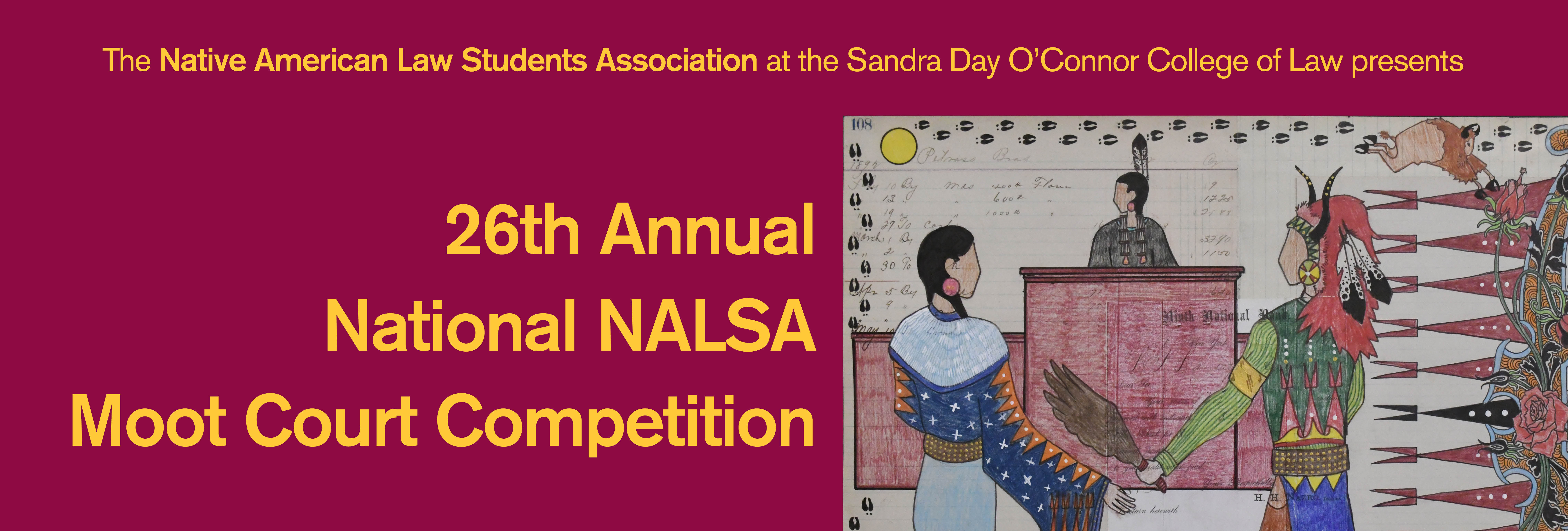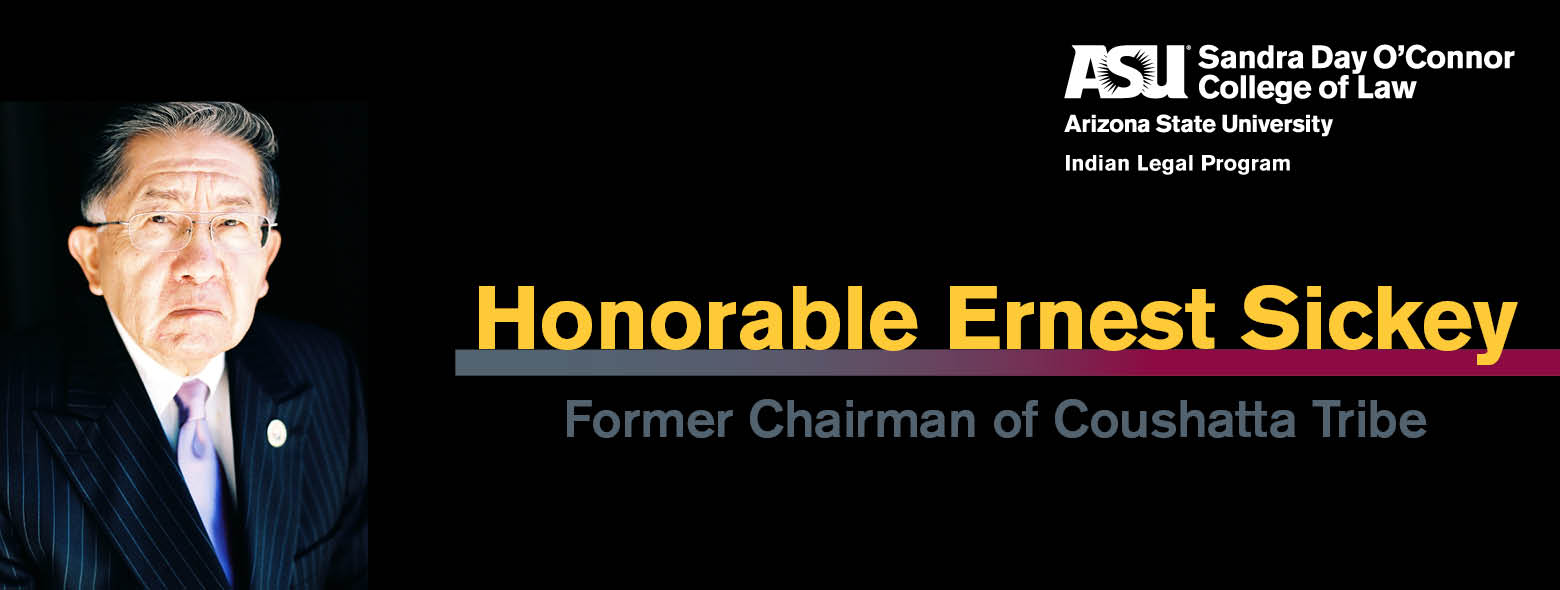ILP Impact: NNALSA Moot Court Competition, New Online MLS Program, Trips to GRIC & Ho-Chunk, Inc
Category Archives: Information
All Roads Lead to Chaco Canyon: Revitalizing Trade Between Native Nations Conference – 3/23 & 3/24
Professors Lance Morgan and Robert J. Miller will be speaking at upcoming conference, “All Roads Lead to Chaco Canyon: Revitalizing Trade Between Native Nations” March 23-24, 2018. For details go to https://law.arizona.edu/native-trade.
SOS – Call for National NALSA Moot Court Competition Judges!
 Arizona Attorneys and Tribal Court Judge Friends: SOS! Are any of you interested in judging a few NALSA Moot Court oral argument rounds? The arguments will be at ASU Law in Phoenix. We will provide the bench brief and sample questions. Times needed are Friday at 3:45, Saturday at 8:30 and Saturday at 10:30. Please let me know and I will connect you with my awesome students! Thanks in advance for your help!! Contact kate.rosier@asu.edu.
Arizona Attorneys and Tribal Court Judge Friends: SOS! Are any of you interested in judging a few NALSA Moot Court oral argument rounds? The arguments will be at ASU Law in Phoenix. We will provide the bench brief and sample questions. Times needed are Friday at 3:45, Saturday at 8:30 and Saturday at 10:30. Please let me know and I will connect you with my awesome students! Thanks in advance for your help!! Contact kate.rosier@asu.edu.
Roatch-Haskell lecture with Robert J. Miller – 3/23
The John F. Roatch and Linda Haskell Lectures,
a special one-day event
March 23, 2018
9:00 a.m. – 2:00 p.m.
University Club of Phoenix
The event is free and open to public. Register here.
The Program
9:00 – 9:30 a.m. | Arrival and registration
Coffee and muffins
9:30 – 10:15 a.m. | The Roatch Lecture
Frank Rennie, Professor of Sustainable Rural Development and Assistant Principal
Lews Castle College University of the Highlands Islands
Celtic lands and identities: Global and local implications
10:15 – 10:30 a.m. | A brief commentary from Professor Miller
10:30 – 10:45 a.m. | Discussion (Audience Q&A)
10:45 – 11:15 a.m. | Break
Coffee and pastry refill in the garden
11:15 a.m. – 12:00 p.m. | The Haskell Speaker
Robert Miller, Professor, Sandra Day O’Connor College of Law at Arizona State University
Faculty Director, Rosette LLP American Indian Economic Development Program
Indian Nations: Land, governance and economic development
12:00 – 12:15 p.m. | A brief commentary from Professor Rennie
12:15 – 12:30 p.m. | Discussion (Audience Q&A)
12:30 – 12:45 p.m. | Presentations
The audience will move to the garden for lunch after a brief break
1:00 – 2:00 p.m. | Luncheon in the Garden
To view full announcement, click here.
Arizona Voting Rights – 3/9
The Arizona Advisory Committee to the U. S. Commission on Civil Rights is hosting a public meeting to hear testimony regarding potential barriers to voting such as language access, access to the polls, early voting, and voter registration that may have a disparate impact on voters on the basis of race, color, religion, sex, age, disability, or national origin. This meeting is free and open to the public.
Download pdf AZ SAC Voting Rights Briefing Flyer
Read our latest ILP Impact Newsletter – February edition
Documentary Screening: More than a Word – 2/19
 Documentary Screening: More Than A Word in W.P. Armstrong Great Hall at 6pm.
Documentary Screening: More Than A Word in W.P. Armstrong Great Hall at 6pm.
Honoring 45 years of teaching with Professor Robert N. Clinton – 3/22
 Professor Clinton first joined the ILP family in 2001 and he will be greatly missed. We are collecting retirement messages for Professor Clinton to include in a slideshow that will be displayed during the gathering. Send your messages and RSVP to ILP@asu.edu.
Professor Clinton first joined the ILP family in 2001 and he will be greatly missed. We are collecting retirement messages for Professor Clinton to include in a slideshow that will be displayed during the gathering. Send your messages and RSVP to ILP@asu.edu.
Please join us to wish congratulations and farewell to our distinguished Foundation Professor of Law Robert N. Clinton.
Lunch Conversation with Honorable Ernest Sickey – Today!
Friday, February 9, 2018 / 12:15-1:15 p.m.
Beus Center for Law and Society
President Peterson Zah Active Learning Classroom, Room 352
111 E. Taylor Street, Phoenix, AZ 85004
Ernest Sickey held leadership roles for the Coushatta Tribe of Louisiana for nearly three decades. He was a trailblazer in the evolution of Indian affairs in the southeastern United States and led his own community from legal obscurity to becoming the first tribe to be recognized by the state (1972), one of the only tribes in the nation to be recognized by the Department of Interior through administrative channels (1973), and laid the foundation for multiple economic ventures that have since placed the Coushatta among the state’s top private employers.
In addition to his efforts in advocating for his own community, Sickey lobbied the Louisiana legislature to create an Office of Indian Affairs, which he served as the first executive director. He was also among the founders of the Louisiana Inter-Tribal Council and Institute for Indian Development. Today, Louisiana is home to four federally recognized and ten state recognized tribes.
A key player in the broader regional movement in promoting Indigenous rights, Sickey was among the original members of the United Southern and Eastern Tribes. He testified before Congress, led efforts in establishing legal precedents around land claims and tribal jurisdiction, and has spoken before United Nations panels.
Climate Impacts conference recap in The Revelator
“Climate change is one of those things that can uproot all people,” said Lickers, environmental science officer for the Mohawk Council of Akwesasne in Ontario, Canada, one of the Haudenosaunee peoples. “We’ve been concerned about climate change for a long, long time.” Read the full article Tribal Cultures Under Water – Falling Through Thin Ice.



